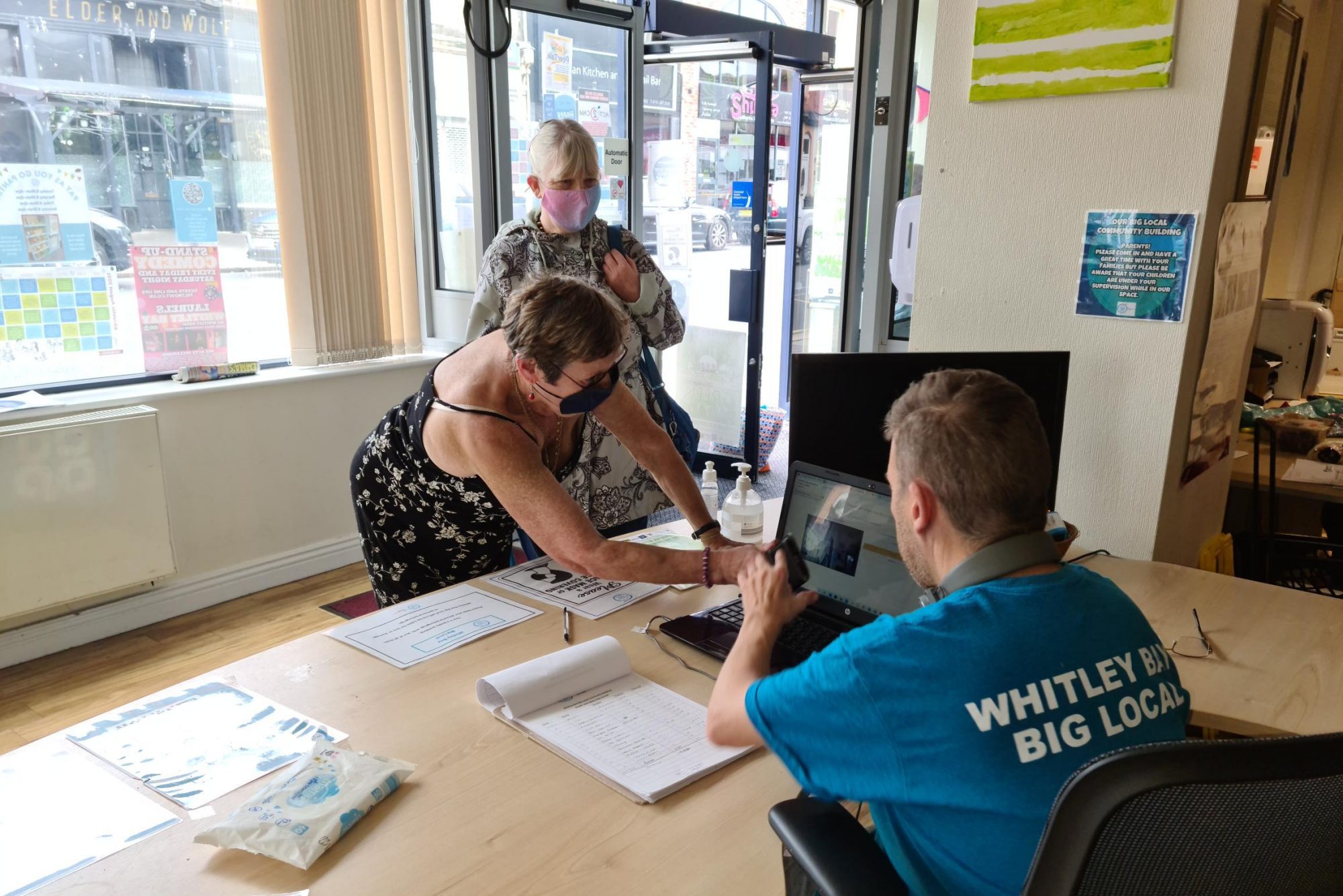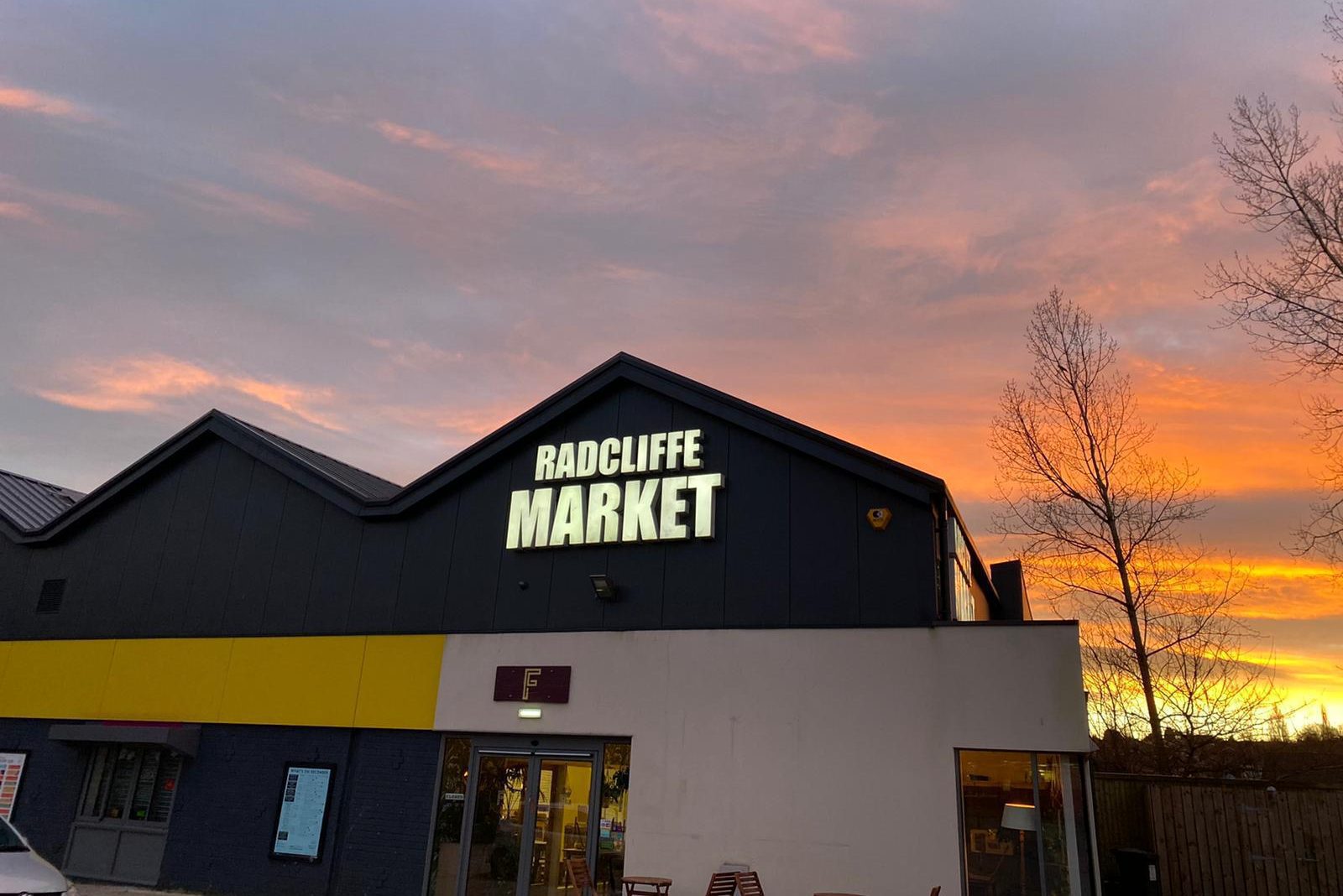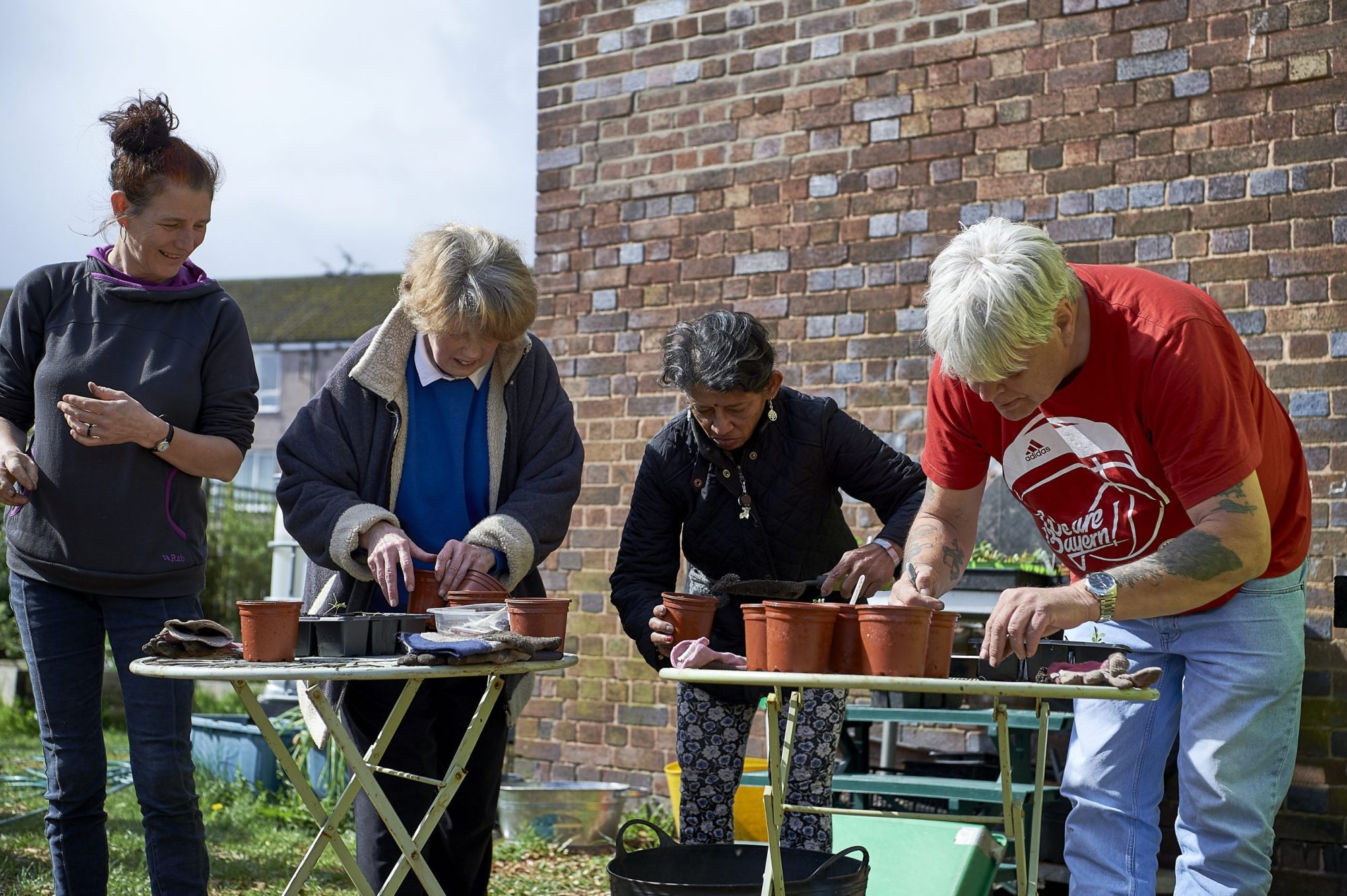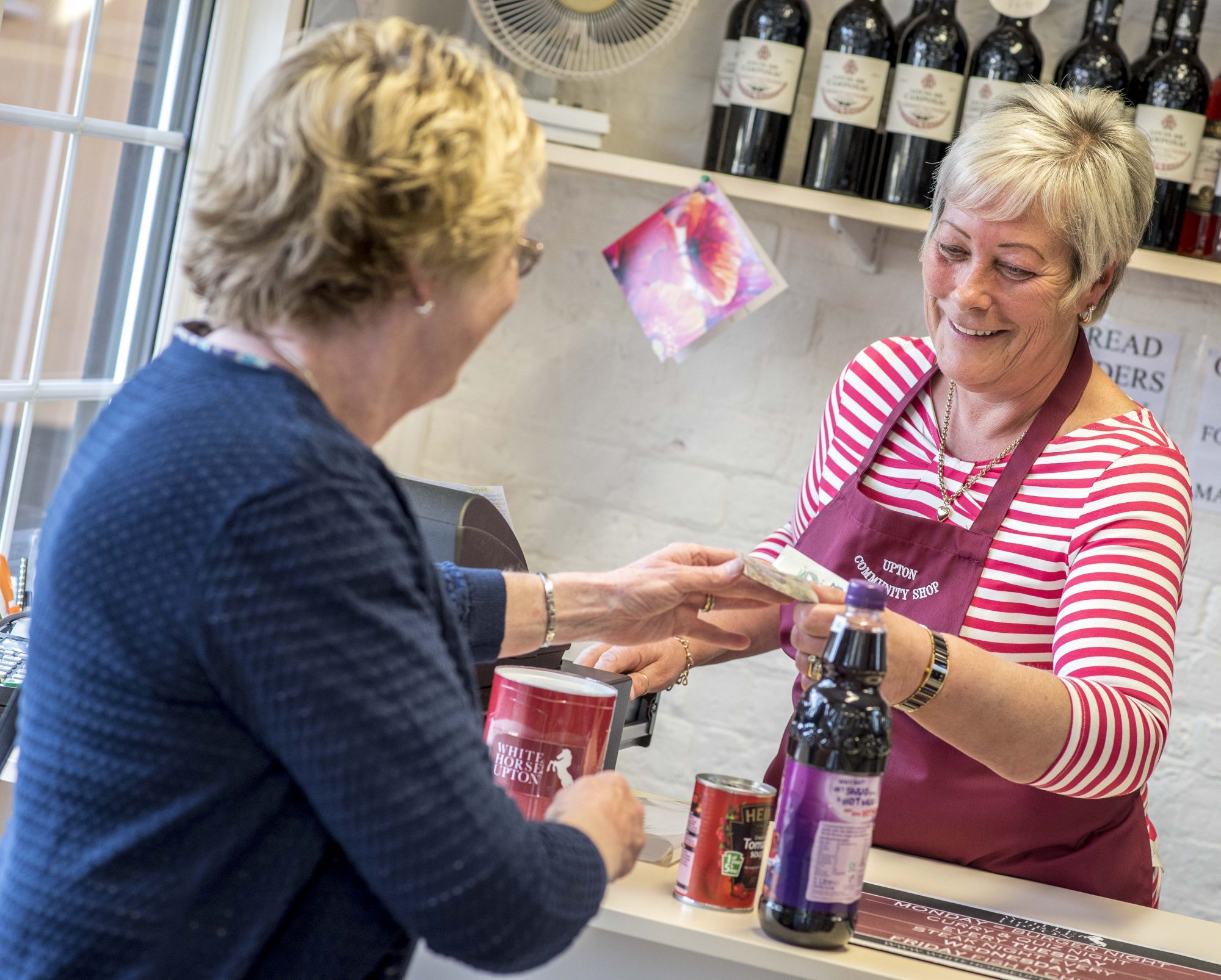And when the pandemic is over, says David Carnaffan, chief executive at the community business, it’s not changing back.
Whitley Bay is a seaside town near Durham. In 2016 it received £1m from the National Lottery Community Fund’s Big Local initiative, to be spent over ten years. Whitley Bay Big Local is a community business set up to spend the money, which has been used to set up and run many initiatives to improve the local community.
The community business runs a broad range of different services. It offers small direct grants to local people with inspiring projects. It runs Bay Create, an arts service to bring people together and celebrate the local area. It has tidied and refurbished areas around the town centre. And it runs Big Batch Cook, in collaboration with several other local services, to deliver food to people in need.
“We’ve been insulated from the worst of the pandemic by having ten year funding from the Lottery, and also because we’ve had support from the local authority,” says David. “We’ve been able to try lots of different things and find different ways to help people through the lockdown.”
Providing services remotely
One of the most important services the community business delivers is a local community centre. Before the pandemic its services were run almost entirely face to face and within the building, and staff and trustees worked and met almost entirely on the premises.
“But we’re not going back to that,” says David. “I think it would be a colossal waste of everyone’s time to have to come back into the building for everything.”
He says the centre has also been able to continue to run a surprising amount of activity. “Most of our meetings have been considered support groups, and the Covid rules permit support services to carry on, so we’ve been able to hold them in the building,” he says. “Those services we ran which didn’t fall into that category, we’ve taken online.
“At first we used Zoom, but now all of our meetings, including the trustee meetings, have moved onto Teams. We’ve found it a great technology. We realised quickly how good it could be for staying in touch with people. It’s extremely easy to organise meetings. We’ve also communicated a lot more using WhatsApp and Facebook.”
Increased confidence
The community business spent a lot of time building digital skills among both staff and local people, David says. “We used a lot of the funding to put digital approaches in place. We pushed services online, and we provided funding to buy software and hardware for people who needed it.
“We’re seeing increasing confidence from everyone. What we’ve learned is that we shouldn’t be frightened of technological innovation. There’s a risk that you learn how to do things one way and then keep on doing things that way. But there’s probably a much better way of doing things.”
Lockdown has accelerated the speed at which digital skills have been built up, he says, although he wishes things could have gone faster. “I was a little frustrated by the pace at which services moved online. When lockdown started, we needed urgency to start getting things available for people who couldn’t come into the building. If we had our time again, we would have done more and we would have done it faster. But I suspect that this is an inevitable part of the process. We needed to learn how it would go.”
Most of the services in the community centre are run by other people, he says, and the community business has worked with them on the best way to deliver post-pandemic.
“The likelihood is that we will move to blended sessions. We’ve thought quite a lot about the best way to deliver services. At the start of this pandemic, you would have been hailed as a technical wizard to run online meetings. But I suspect a lot of it will stay.”
The community business has also invested in systems such as Twine to help understand who is coming in and out of the building, he says, which have been extremely helpful.
“What the Twine system has allowed us to do is to create QR codes,” David says. “They’re unique identifiers for service users. That’s allowed us to scan people into the system and register them as members. Everyone who comes into the building is a member and scans themselves in. That’s much cleaner and easier. We know exactly who’s doing what. And it’s great for Covid. We know who’s been in contact with who.”
Tackling digital exclusion
David has also worked on projects to tackle digital exclusion. “We got hardware out to people,” he says. “We’ve got people in to use services. They didn’t have the internet at home so they’ve had to come into the community centre to use it. These were people who needed our support. We set up a device bank, too. Within a week they were all gone.
Here, he says, he has more insight from another role. Until partway through lockdown, he combined his role at Big Local with work at a youth homelessness charity based in nearby Durham. In both positions he’s worked around digital exclusion.
He is not entirely convinced by the conventional narrative. Digital exclusion, he says, is certainly a challenge, but one which can be overcome. “We did have digital exclusion here,” he says, “but we’ve found ways to cope with it. We opened a device bank, for example, and the devices were gone within a week. But to be honest, we were geared up for more digital exclusion than we encountered.
“Even among young people who’d experienced homelessness, over 80 per cent of young people had access to hardware. Over a third had WiFi installed. A third had access to unlimited phone data. So even young people who had experienced homelessness tended to have access.”
Digital exclusion is a barrier and a problem, he says. But he worries that instead of seeing it as a problem to be solved, too many agencies are using it as a get-out clause – saying they cannot deliver services to people because they cannot easily be contacted.
“I think the charity sector and the government have to be careful not to use it as an excuse,” he says. “We can’t say that we’re not able to reach people because they’re digitally excluded. We can’t be allowed to put it in the ‘too hard’ bracket.”
So, what next for Whitley Bay Big Local? David is optimistic about further digital growth in the future.
“We’re thinking now about what the next big thing will be,” he says. “What will be the new technology that will allow us to improve and do something different again? I’m not sure where it will come from, but we need to continue to look out for it.”



